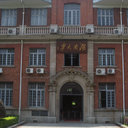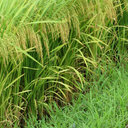Lithium attenuates scopolamine-induced memory deficits with inhibition of GSK-3β and preservation of postsynaptic components.
Sleutelwoorden
Abstract
Cholinergic dysfunction plays a crucial role in the memory deterioration of Alzheimer's disease, but the molecular mechanism is not fully understood. By employing a widely recognized cholinergic dysfunction rat model that was produced by intraperitoneal injection of scopolamine, we investigated the mechanisms underlying scopolamine-induced memory deficits. We found that scopolamine caused spatial learning and memory deficits that involved activation of glycogen synthase kinase-3β (GSK-3β) and impairments of dendrite arborization and spine formation/maturation associated with alterations of AMPAR, Homer1, and CREB. Pretreatment by intraperitoneal injection of lithium, an inhibitor of GSK-3, for one week prevented the synaptic changes and the learning and memory deficits induced by scopolamine. Lithium treatment also activated cholineacetyltransferase and inhibited acetylcholinesterase, which might have also contributed to the improved memory. Our findings suggest that GSK-3β may be a key molecular mediator of cholinergic synaptic dysfunction, and that inhibition of GSK-3β by lithium may be promising in protecting cholinergic synaptic functions.





